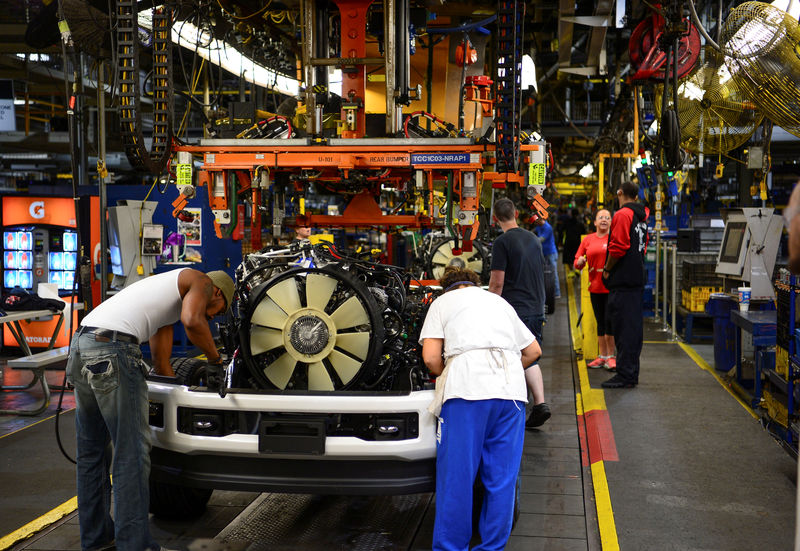By Lucia Mutikani
WASHINGTON, Sept 5 (Reuters) - U.S. worker productivity slowed in the second quarter, the government confirmed on Thursday, as productivity in the manufacturing sector declined by the most in nearly two years.
The Labor Department said nonfarm productivity, which measures hourly output per worker, increased at an unrevised 2.3% annualized rate in the last quarter.
Productivity also rose at an unrevised 3.5% rate in the first quarter. Economists polled by Reuters had expected second-quarter productivity would be revised down to a 2.2% rate.
Manufacturing productivity fell at a 2.2% rate in the second quarter, instead of the 1.6% pace estimated last month. That was the weakest since the third quarter of 2017 and followed a 1.2% pace of increase in the first three months of the year.
The moderate growth in overall productivity was flagged by a deceleration in gross domestic product growth in the April-June period. The economy grew at a 2.0% rate in the second quarter after expanding at a 3.1% pace in the first quarter.
Compared to the second quarter of 2018, productivity increased at a rate of 1.8% as reported last month.
Unit labor costs, the price of labor per single unit of output, rose at a 2.6% rate in the second quarter, rather than the previously estimated 2.4% pace. Unit labor costs surged at a 5.7% rate in the first quarter.
Compared to the second quarter of 2018, labor costs rose at a 2.6% rate, instead of the 2.5% pace reported last month, suggesting inflation could remain moderate.
Hourly compensation was revised slightly up to show it increasing at a 4.9% pace, rather than at a 4.8% pace. Hourly compensation increased at a 4.4% rate compared to the second quarter of 2018. It was previously estimated to have risen at a 4.3% pace.
Hours worked dropped at an unrevised 0.4% rate, the biggest decline since the third quarter of 2009. Hours worked rose at a 0.4% pace in the first quarter. They increased at a 0.9% rate compared to the second quarter of 2018.
